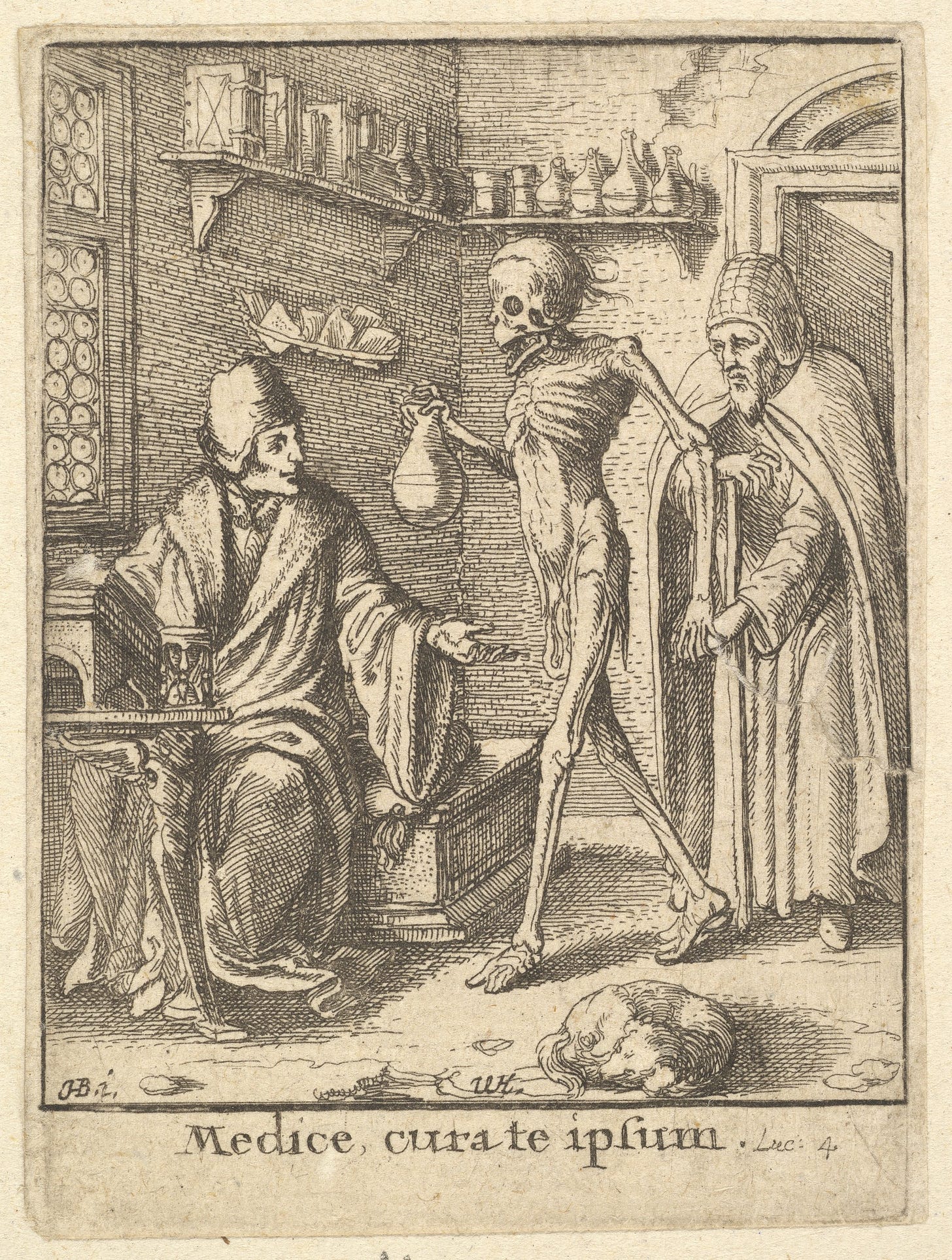The beholden
The moral quandary, closer to the moral dilemma, around needing pharmaceutical medications runs deep in the disability community. I absolutely NEED medications. My broken body does not function like that of an ideal body1. The most egregious disruption is in my gut. Having gastroparesis means that my stomach and intestines do not move food, acid, mucus, water, etc. through my digestive system. The motility is so slow that I would not be able to eat or have a bowel movement without surgical interventions and medications.
Autonomic small fiber neuropathy symptoms like POTS (postural orthostatic tachycardia syndrome), nerve pain, numbness, chronic migraines, urticaria, and so on, cause daily issues that require me and others to grasp onto our pills as though they are literal life preservers. Pain is surprisingly tolerable, up until a point. The feeling of pain is different depending on the condition. Sometimes it burns, stabs, crushes, aches, sizzles, stabs, itches, or pulses. No matter the type, it ebbs and flows, which allows for moments of sweet relief. When pain is simmering, it almost feels invisible, a whisper at the heart of your being reminding you that your life is entangled with discomfort. Being so use to the up and downs, a bit of quiet pain is crave-worthy when the bad moments hit. A near blissful interlude between the terror of deep pains. At its worst, the most aggressive pain makes you crazy. It makes death look beautiful. You feel out of control. This body, the vessel which contains your self, has turned against you and now every movement, every breath you struggle to take is ruled by that hammering fist of pain. With that level of pain, you are not you anymore.
We think pain is a mental weakness. After all, you and everyone else has been told, pain is all in the head. It’s a feeling not a fact. Until the realness of pain happens to you. When that suffering hits a peak and there is no downswing on its severity, you will seek out any and all methods of relief. There is no talking yourself out of pain, just like there is no talking yourself out of other illnesses. We have to use various types of treatments, including medications, to keep our bodies working and silence symptoms. I would love to be able to think my way out of a migraine or meditate my way to nerve regeneration. That would be fan-freakn-tastic! Maybe someday, but we aren’t there yet.
Like most people with chronic conditions I have tried all the alternative treatments and tools available. I have a deep mistrust of companies that profit off of addiction and treatments as opposed to cures. Anyone who makes their money by keeping people in a cycle of needing temporary fixes, doesn’t have the best intentions for society. Medicine is a business. There are certainly people within the system who are there for the good of humanity. People who want to help, cure, fix, stop, and reverse diseases. Unfortunately, those aren’t the people at the top. The decision makers, the profiters, the political lobbyists, the greedy goons who decide that people are numbers. We are money machines to them. Nothing more.
That’s the emotional toll of being tightly tied to pharmaceutical companies. On one hand, they (the scientist working for them) have made compounds which help ease symptoms and even sustain life. On the other hand, they aren’t doing it fairly or with cures as an end goal. If I didn’t use these drugs and the medical system as whole, I wouldn’t be alive. My stomach would have caused starvation. My heart would have exhausted itself. I absolutely would have ended things from the intensity and length of my pain. I suppose it has turned into a bit of selling my soul and values for another day where I might feel good enough to sit in the sunshine. Today, at this stage, it is worth it. Like everything else we complain about in this modern age, I’m willing to be a hypocrite for my own benefit. I’ll do good where I can and speak out when I can, but I am going to continue to partake in something I hate because I want to survive.
Richard Pennington A Descriptive Catalogue of the Etched Work of Wenceslaus Hollar, 1607-1677. Cambridge University Press, Cambridge, 1982, cat. no. 249 ii/iv.


